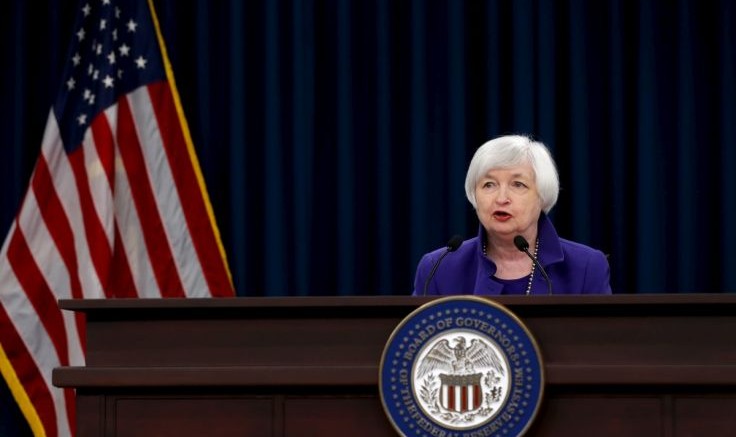Yellen Sees Risk Of Overheating Without Modest Hikes Over Time
The Federal Reserve Chair Janet Yellen said gradual interest rate hike is appropriate policy at a time of high uncertainty about consumer prices.
“It would be imprudent to keep monetary policy on hold until inflation is back to 2 percent,” she said Tuesday in Cleveland. In addition, she said the Fed “should also be wary of moving too gradually.”

Federal Reserve Chair, Janet Yellen
Speaking of low inflation, Yellen said this year low inflation is probably temporary. “But we recognize that the forces driving inflation are imperfect. Therefore, Fed must adjust outlook when warranted by new economic data.”
Also, she said low inflation likely reflects factors that should fade. Meaning there might be factors subduing prices but not conspicuous just yet. However, “We judge that inflation will stabilize at about 2 percent in few years.”
“There is probability that inflation could be greater than 3 percent or slip below 1 percent next year. It all depends on global oil prices, productivity and global demand.” Another indication of growing U.S. uncertainties and the reason she repeatedly said a change in economic outlook could impact these estimates.
Again, the Fed chair sees stronger wage growth that will eventually boost consumer spending and strengthens business activities in the long-term.
However, she said Federal Reserve should be careful of moving too quickly in order to be able to accommodate shock to the economy per adventure global economic outlook change.
But Fed’s quarterly forecasts published last week and yesterday showed most policy makers are projecting one more rate hike this year and three in 2018.
The odds of the Fed raising rates in December rose from 63 percent on Monday to about 70 percent.
“Yellen sounds resolute in her dismissal of recent inflation weakness as ‘idiosyncratic’ and ‘transitory.’ She is willing to consider alternative explanations, but only hesitantly,” said Carl Riccadonna, chief U.S. economist at Bloomberg Intelligence. “Financial-stability risks are clearly a major motivating factor, as well.”
The Fed will start unwinding its $4.5 trillion balance sheet in October.




Yellen must raise rates to at least make foreigners buying US Treasuries still buy despite the dollar devaluation. Why foreigners buy US treasuries given the devaluation makes me wonder. Either they think their currency is a worse risk for loss or they literally have no other place to allocate the money.
Yellen concern is not foreigners but pricing and continuous job creation. Yellen want to know if consumer prices and labor market will not be negatively impacted once the Fed starts unwinding balance sheet and tighten further. Therefore, the emphasis on gradual. Again, U.S. fundamental is stronger than other developed nations but inability of the current administration to push through with fiscal policy, health care reform and North Korea back and forth threats weaken U.S. economic outlook.
That is only what the Federal Reserve usually is concerned about. Also, pricing is not stable, the simple fact is they have cut out or devalued most of what shows inflation, namely housing, education, and health care (the main places where it counts). Then they substitute food to deflate its cost and core out gas and oil prices because its too volatile. Thus you are reading an indicator on the inflation of everything but what counts. The Federal Reserve is aware of this.
What they are mainly concerned with and rightly so is the fall in the dollar which is not an indicator of US strength but weakness and they know it even if they lie about this.
Nothing is really stable, especially during "a period of high uncertainty like this." But she was clear yesterday in Cleveland, perhaps you need to watch the video. Thanks for your comments.